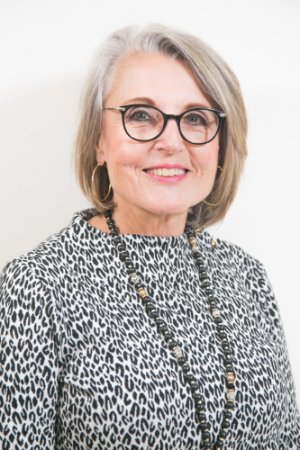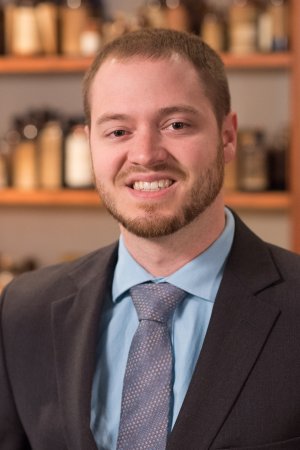
Gail Bullard
Ferris State University and regional partners will use a four-year grant of $1.2 million to address significant substance abuse levels in a region that includes Mecosta, Montcalm, Newaygo and Osceola counties in north-central Michigan.
The Health Resources and Services Administration’s grant is titled “Rural Substance Use Disorder Network: Ferris State University (Central Michigan Recovery and Education Network-FSU).” Gail Bullard, an associate professor of Health Administration in Ferris’ College of Health Professions, serves as CMREN’s project director. Bullard pointed to a study by East Tennessee State University and NORC at the University of Chicago that noted in 2021, Michigan had 2,921 overdose deaths. Deaths attributed to overdoses in the targeted counties were Mecosta (1); Montcalm (11); Newaygo (12); and Osceola (10). The grant’s population focus is people living in the HRSA-designated areas with health professional shortages in dental care, mental health and primary care.
“People with substance use disorder seeking sustainable recovery struggle to find affordable housing, employment, access to both health care and behavioral health care, community services and the general needs for living,” said Bullard, the grant’s project director. “Often, this leads to relapse, as the individuals cannot deal with the multiple challenges they face. This grant will allow these very rural, underserved communities to better serve the needs of those in recovery, saving lives and improving health within their communities.”
She added, “There has been an increase in three of the four counties for drug overdose mortality and every county for opioid overdose mortality. This demonstrates a serious need for continued overdose treatment, prevention, and recovery efforts in this four-county area.”
The HRSA Rural Health Development grant is $300,000 annually, beginning July 1, 2023, and extending until June 30, 2027. Ferris’ Board of Trustees officially accepted the grant during its special meeting on June 21. Only 44 grants were awarded nationwide and Ferris was one of only two in Michigan.
Bullard noted that the grant is primarily awarded to Ferris, but includes a wide range of partners from Mecosta, Montcalm, Newaygo and Osceola counties. Partners also include Central Michigan Community Mental Health, Montcalm Care Network, Corewell Health, District Health Department #10, Central Michigan Health Department, Families Against Narcotics, Jonah Foundation, Angels of Action, Family Health Care and Arbor Circle. For these collaborative partners, the grant goals are decreasing the incidence of overdose-related morbidity and mortality, increasing the incidence of long-term recovery and decreasing the incidence of overdose and substance use disorder through integrated care for the affected individuals with an emphasis on four subpopulations: veterans, pregnant women, recently incarcerated individuals and homeless adolescents and adults.
“This grant will sustain and build open the work that the Central Michigan Recovery and Education Network has been doing since 2019 through HRSA Rural Communities Opioid Response Program funding to address substance use disorder prevention, treatment and recovery,” added Bullard, who earned a bachelor’s degree in Community Development—Healthcare from Central Michigan University, a master’s degree from CMU in Health Sciences Administration, a Doctorate in Health Education (DHEd) from A. T. Still University in Kirksville, Missouri and her diploma in Nursing from the Butterworth Hospital School of Nursing.

Scott Sexton
Scott Sexton, an assistant professor of Pharmaceutical Sciences in Ferris’ College of Pharmacy, echoed Bullard’s words.
“The Central Michigan Recovery and Education Network out of Ferris State University will work collaboratively with partnering organizations to address substance use disorder in our four-county area,” said Sexton, principal investigator for the grant. “Funds will be used to develop a strategic plan for creating a sober recovery ecosystem in addition to being utilized for the implementation strategies of that plan.”
This grant, Sexton believes, hits close to home with so many people directly or indirectly affected by the substance abuse in these rural communities near Ferris, in Mecosta County.
“I believe the entire community will benefit from this grant,” said Sexton, who earned his PharmD from Southern Illinois-Edwardsville, and whose scholarship and research focuses on substance abuse disorder and education. “Nearly everybody has a friend or family member who has struggled with substance use disorder. To create the safest environment for our community, our collaborative network needs to continue to tackle difficult problems as a collective team.”
Sexton added, “This grant provides the funding and direction for our network to make a real impact in our community and develop a recovery ecosystem that will save lives. I couldn’t be happier to be included in this work, and I am so excited to see how the amazing work already being done in our community can be amplified through the efforts of this grant.”
In addition to Bullard and Sexton, key staff members involved in securing and administering the grant are Wendy Stapp, the grants administrator, and Jessica Wimmer, interim network director.
The new grant builds on a strong foundation established from a 3-year HRSA RCORP Implementation grant, funded in 2020. Successes from this project include implementation of pharmacy SUD telehealth, community substance use disorder education, Narcan distribution, and a new Families Against Narcotics chapter including a Hope Not Handcuffs program.

